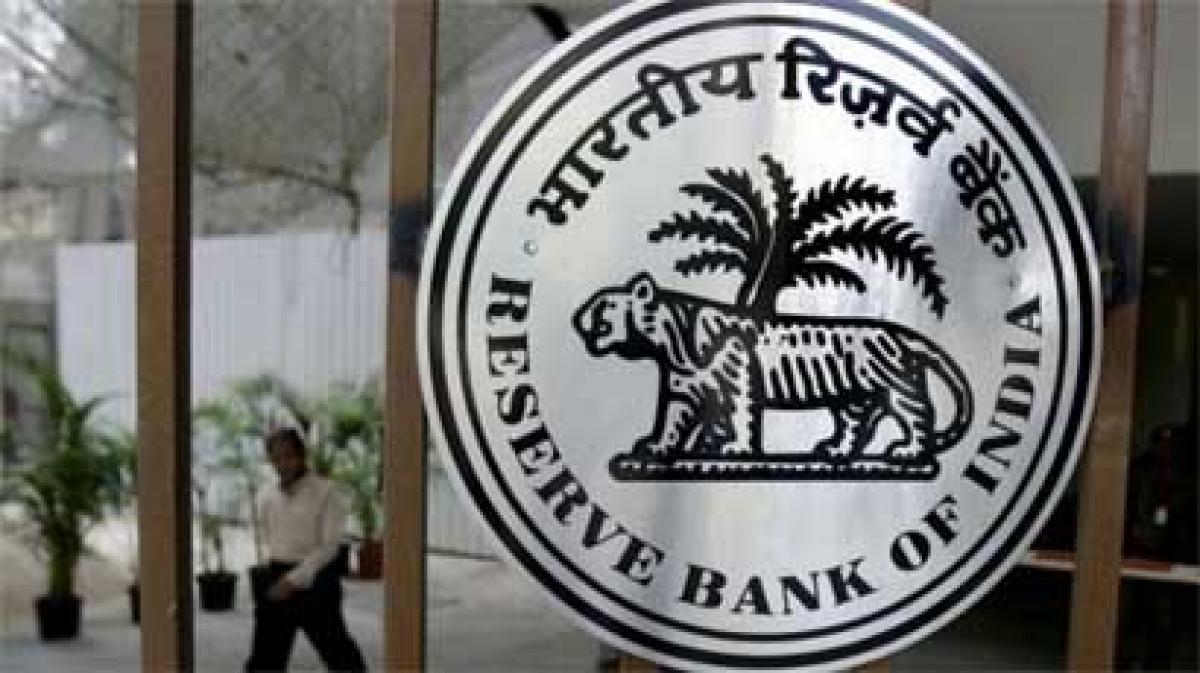Live
- ‘Gully Gang Stars’ review: A gripping tale of resilience and justice
- Train crew suspended for violating speed limit
- Scrap NITI Aayog, bring back Planning Commission: Mamata
- Know your MLA: Satya Prabha continues husband’s legacy with resounding victory
- Dharani Revamp on Cards: CM calls for in-depth study to resolve Dharani lapses
- Huge scam in government ads
- NITI Aayog to focus on ‘Viksit Bharat @2047’
- PM playing petty politics: Oppn
- Jagan government destroyed AP economy says Chandrababu Naidu
- On Kargil Vijay Diwas, Modi hails Agnipath, targets Opposition
Just In

The Reserve Bank of India (RBI) on Thursday asked lenders going in for the strategic debt restructuring (SDR) scheme to make sufficient provisions to the tune of 15 per cent of the loans value, to tide over possible loss in the value of the equity they acquire in lieu of debt and residual loans.
The Reserve Bank of India (RBI) on Thursday asked lenders going in for the strategic debt restructuring (SDR) scheme to make sufficient provisions to the tune of 15 per cent of the loans value, to tide over possible loss in the value of the equity they acquire in lieu of debt and residual loans.
The new direction came in after the central bank on Thursday tweaked some of the SDR norms after many of the stakeholders sought more flexibility.
The RBI said it is possible that the banks, after invoking SDR in an account, may not be able to sell their stake to new promoters within the 18-month period, thus revoking the standstill benefit, which may result in a sharp deterioration in the classification of their remaining loan exposures from what prevailed on the 'reference date'.
"To avoid the cliff effect of resultant provisioning, banks should build provisions such that by the end of the 18-month period from the reference date, they hold provision of at least 15 per cent of the residual loan," the RBI said in a notification issued here on Thursday.
The required provision should be made in equal installments over the four quarters and it shall be reversed only when all the outstanding loans in the account perform satisfactorily during the 'specified period' after transfer of ownership control to new promoters.
The RBI reiterated that the trigger for SDR must be non-achievement of the viability milestones and non-adherence to 'critical conditions' linked to the option of invoking SDR, as stipulated in restructuring agreement, and SDR cannot be triggered for any other reason.
The central bank asked banks to do due diligence to make sure that the 'new promoter', to whom they divest their equity, should not be a person or entity or subsidiary or associate from the existing promoter or the promoter group.
The central bank also said the asset classification benefit will be available to the lenders provided they divest a minimum of 26 per cent of the shares of the acquired company to the new promoters within the stipulated time line of 18 months and the new promoters take over management control.
"The lenders would thus have the option to exit their remaining holdings gradually, with upside as the company turns around," the notification said.

© 2024 Hyderabad Media House Limited/The Hans India. All rights reserved. Powered by hocalwire.com







